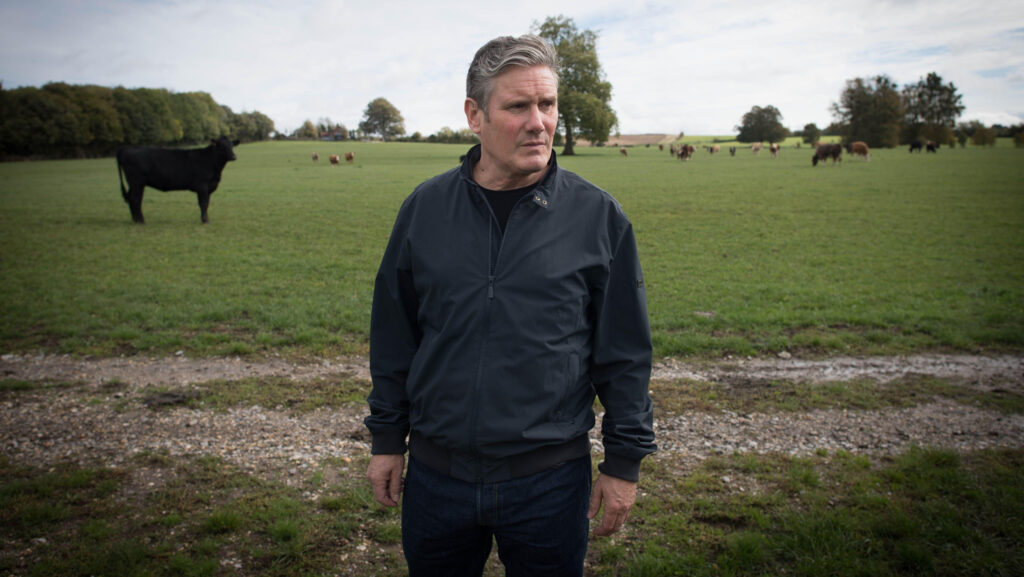Editor’s View: Agriculture centre to Starmer’s trade dilemma
 © Keir Starmer © PA Images/Alamy Stock Photo
© Keir Starmer © PA Images/Alamy Stock Photo What a shame for Sir Keir Starmer.
Try as he might to ignore farming, it keeps getting shoved further up the pescatarian prime minister’s agenda.
Now agriculture is a component of what is likely to be one of the defining issues of his first term – whether to pursue a closer trading relationship with the EU or the US. This appears to be a proper either-or choice.
See also: UK food standards torn between EU and US demands
If we shift closer to the EU, then Labour gets to meet a manifesto pledge – “to cut red tape at our borders to get British food exports moving again” – by committing to further alignment with the EU on a raft of agri-food standards.
Anything that would help food exports get back to pre-Brexit levels would be a major win, given that export volumes to the bloc have fallen by more than one-third since 2019.
Yet since US president Donald Trump’s “Liberation Day”, this option has become fraught with additional difficulty.
Tying ourselves to the EU’s often gold-plated standards may prevent the UK signing a low-tariff trade deal with the US if it insists on further access for agricultural goods as a precondition.
Not signing a deal would endanger the health of our car and drug manufacturers, whose products make up a quarter of the £60bn of UK exports to the US.
It is also the third-biggest individual export market for food and drink. A proper dilemma when you look at it from the perspective of the whole economy rather than just agriculture.
And weighing on Sir Keir and chancellor Rachel Reeves the whole time is the need to get business motoring to relieve the enormous pressure on the public finances, with news this week that government borrowing was higher than forecast.
As it stands, analysts say the EU deal looks more likely, despite US vice-president JD Vance saying there was a “good chance” that a trade deal could be reached with the UK – which makes one wonder what concessions UK negotiators have put on the table.
Whatever happens, it reveals how difficult it is to strike a best-of-both-worlds approach, as an independent trading nation trying to find an edge by floating between the world’s dominant players.
Sir Keir’s personal rapport with Trump has given him a chance to play the global statesman on the Ukraine issue, helping to stop the US from withdrawing further from Nato – something that has also won him the gratitude of EU leaders.
But warm words and state visits will only get you so far – self-interest still dominates.
Just look at how French president Emmanuel Macron recently insisted that the UK make concessions on fishing rights in order for UK arms manufacturers to be permitted to bid for EU defence contracts.
What’s the best we can hope for here? If a US trade deal is signed, there may be concessions in other industries offered up that see agriculture shielded or overlooked – unlikely but not impossible.
Beyond that, tight global supplies of food could prevent imports undercutting UK producers.
The US beef herd is down by 9% since 2019 with further reductions forecast this year. Perhaps we’ll end up sending them our beef instead.

